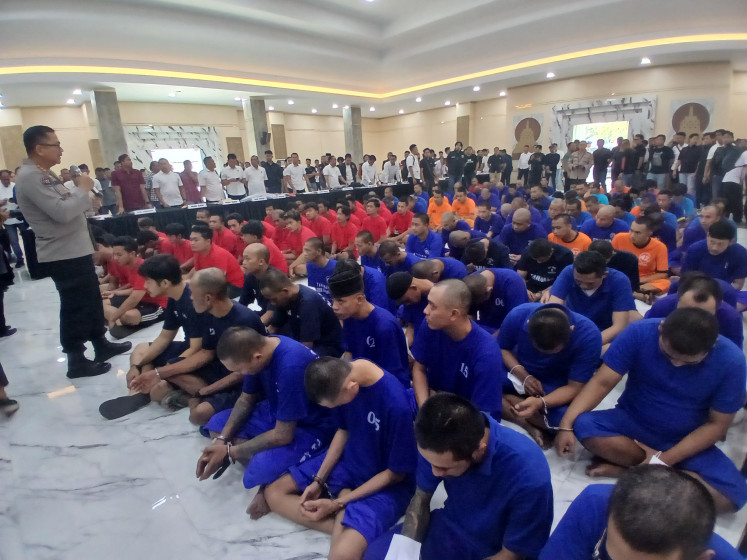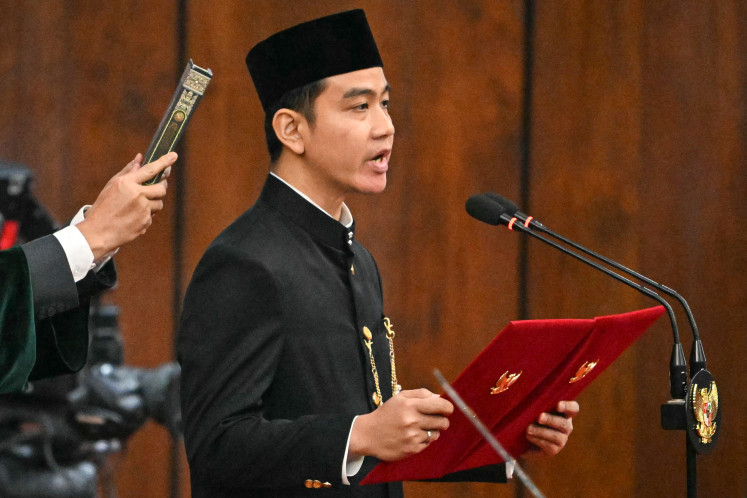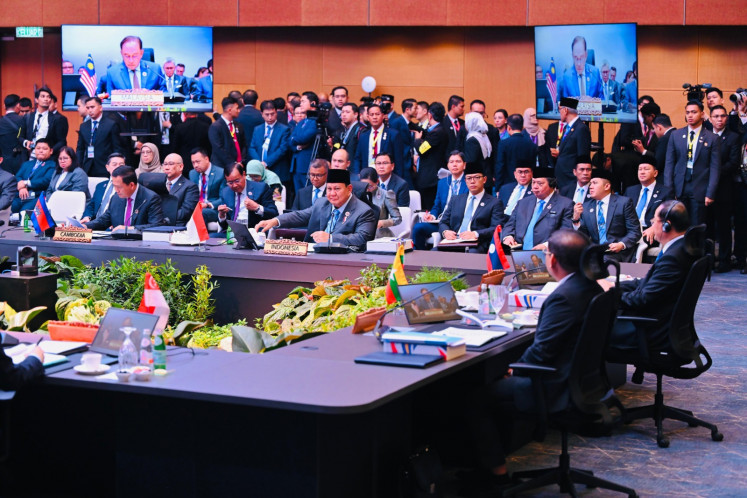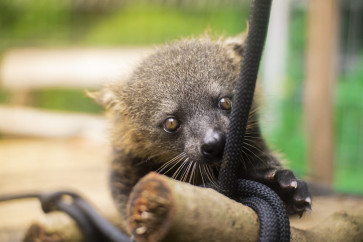Bandung Zoo welcomes birth of two binturong cubs
Also known as bearcats, binturongs are native to the rainforests of Indonesia, though they are listed as "vulnerable" because their population in the wild is dwindling due to human activities like poaching and deforestation.
Change text size
Gift Premium Articles
to Anyone
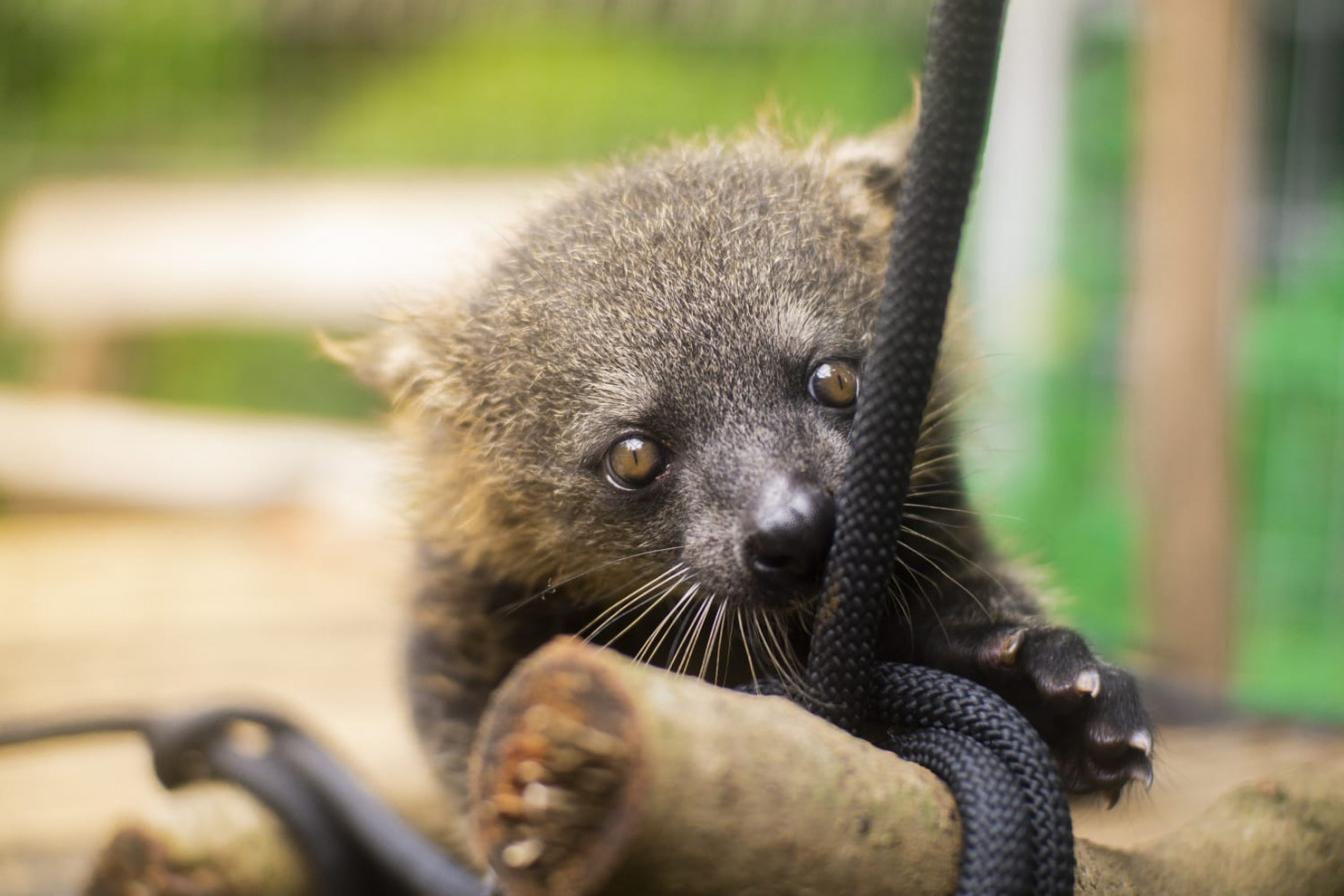 A young binturong, also known as a bearcat, clings to a branch in its enclosure at Bandung Zoo in Bandung, West Java in this undated handout photo. Wild populations of ‘Arctictis binturong’, native to South and Southeast Asia, have declined around 30 percent over the past three decades primarily due to poaching and habitat loss due to deforestation and forest fragmentation. (Courtesy of the Bandung zoo/Courtesy of the Bandung zoo)
A young binturong, also known as a bearcat, clings to a branch in its enclosure at Bandung Zoo in Bandung, West Java in this undated handout photo. Wild populations of ‘Arctictis binturong’, native to South and Southeast Asia, have declined around 30 percent over the past three decades primarily due to poaching and habitat loss due to deforestation and forest fragmentation. (Courtesy of the Bandung zoo/Courtesy of the Bandung zoo)
B
andung Zoo in the provincial capital of West Java welcomed in mid-April the birth of two binturongs, a protected species also known as bearcats that is native to South and Southeast Asia whose wild populations are declining due to habitat loss and poaching.
Bandung Zoo spokesperson Ully Rangkuti said the birth of the two binturong cubs, or binlets, brought pride to the zoo and renewed hope for the conservation of protected wildlife, especially bearcats.
“Each binturong plays a vital role in ensuring the sustainability of the population,” Ully said over the weekend.
Born on April 17, the two Arctictis binturong cubs brought their total population at Bandung Zoo to 33, she added.
“The birth of two binturong cubs not only boosts the zoo’s binturong population but also marks a significant milestone in the broader conservation efforts,” she said.
Ully explained that female binturongs usually gave birth to a litter of two to six cubs after gestation lasting between 90 and 92 days. Binturongs typically lived 15 to 18 years in the wild, she said, but could live up to 25 years in captivity.
Conservation efforts






